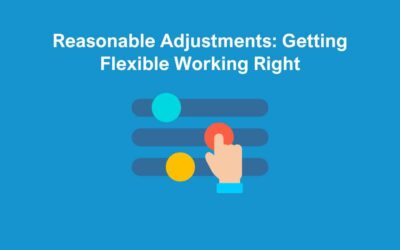With the Great Resignation showing no signs of slowing down, boomerang employees has become a popular trend for 2022. A boomerang employee is a member of staff who is returning to a job or business they previously left.
There are many reasons why an employee may want to return to a business. They may not enjoy their new job and realise their old job wasn’t as bad as what they thought. Staff may also have recovered from the burnout that the pandemic caused, or their old employers have changed their policies on flexible working.
If you’re struggling to hire new staff, the boomerang employee trend may be the perfect solution for you. This recruitment method has many benefits however, it’s important to keep in mind that there are also consequences. Here, you can weigh up the pros and cons.
The benefits of boomerang employees
There are many benefits of welcoming previous employees back to the workplace. The most obvious one is that old employees get up to speed with the job role a lot quicker as they’ve done it before. Even if it’s a different job that they had previously, they have a better understanding of the business and systems. You also know their strengths and areas of development and know what to focus on more when it comes to training.
When it comes to the interview process, you don’t necessarily need to do as much interview rounds or reference checks. You already know what they bring to the table.
Boomerang employees not only have the knowledge from your business, they also return with more experience and skills they’ve learned during their time elsewhere. They could bring in new ways of working, a fresh approach to systems and processes and feedback around what another business is doing. Bringing that fresh perspective that’s essential for a business to thrive.
All of this will help you safe time and money..
Company Culture
No one wants to return to a business where they felt under appreciated, burnt out, and no opportunities for personal development or progression. They will only return and stay if they’ve had a good experience. Perhaps you need to think about how you can improve your company culture.
We understand that every employee has different expectations. Instead of creating a one size fits all people strategy, have conversations with staff and find out about their needs and goals. This doesn’t mean you will never lose an employee again. However, it will go a long way to creating a better experience for employees and increase the possibility of them returning in the future.
Off-boarding
Many people have the attitude that off-boarding is not important as the employee is leaving the business anyway. However, they couldn’t be more wrong.
Offboarding is the process you go through when an employee leaves the business. This includes collecting information, documentation, formal resignation letter, planning recruitment to fill the role, and collecting company property. We encourage you to create an offboarding checklist to make sure you don’t miss anything when dealing with this in the future.
The main aspect of the offboarding process that will increase your the chances of an employee returning at a later date is the exit interview. Before and during the exit interview, make sure the employee knows the door is always open for them and thank them for all their hard work. Don’t forget to wish them the best of luck for the future!
During the exit interview, ask for feedback and find out why they decided to leave the company. This will give you the opportunity to look at these reasons and resolve them. This can also help when discussing their return in the future.
Stay in contact with staff after they’ve left the business and find out how they’re getting on in their new job. This will show them that you care and they will keep this in mind when considering returning in the future. This could be keeping in touch via social media, such as LinkedIn, and it’s also worth following the progress of people that have left your business.
Challenges
Welcoming an employee back may require extra planning. You need to find out why they left and whether it’s still a factor. If nothing has changed, they are more likely to leave again. If that’s the case, then it’s probably wise not to re-hire them.
During their initial interview, find out why they want to return. This will help you determine whether they are returning for genuine reasons.
Are the boomerang employees returning to a different team? Will they fit in with the new employees? If they are returning to the same team, do some relationships need to be addressed? How did their team react when they left and did the burn any bridges?
These are some of the possible challenges you may face that should be considered.
If you would like to find out more about boomerang employees or creating an offboarding plan for your business, why not Contact us now and see if we can help?







